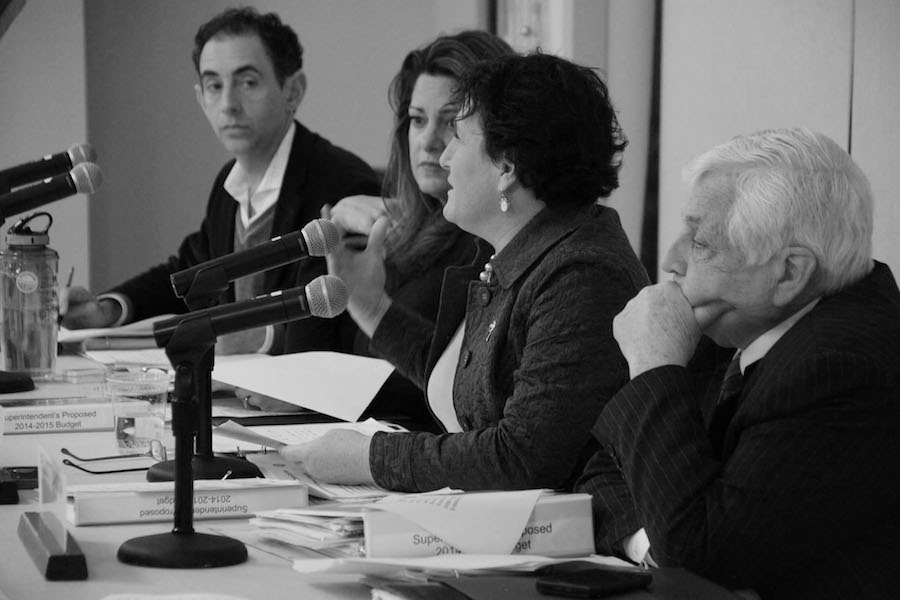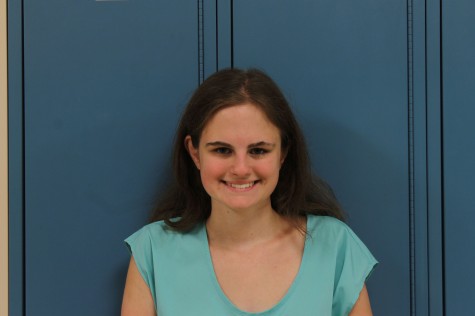The Board of Education (BOE) has proposed a 2014-2015 budget that reflects an increase of nearly six or barely five percent, depending on whether or not the finance board votes to help reduce a recently-discovered shortfall.
The BOE continues to try to cover a nearly $2 million shortfall, which left a $600,000 healthcare account deficit, due to errors in forecasting and an overdrawn reserve. The amount of this year’s percent budget increase will depend on whether or not the Board of Finance helps cover part of the shortfall.
The overall BOE increase accounts for inflation and salary increases built into employees’ contracts. It includes some increases in programs, as well as cuts to areas like supplies and technology.
“My priorities were maintaining programs and health and safety,” Superintendent Elliott Landon said. “I’m quite pleased as any reductions will not jeopardize these areas.”
The $603,000 in increases includes: an expansion of middle school STEM engineering, an additional elementary school paraprofessional and also bus run changes, according to BOE chair Elaine Whitney.
The expanded STEM program introduces an engineering course once per week to 6th and 7th graders; 8th graders, who participated once per week this year, will now have the class twice per week, science department chair A.J. Scheetz said.
Initially, the Superintendent’s proposed 6.15 percent budget had not cut anything from the past year’s budget, only adding increases. However, the BOE ultimately trimmed $699,000 from areas including technology and instructional supplies, cut one permanent substitute in each school, and deferred classroom refurbishments.
Although shortfall accounting and reductions in bits and pieces may not be directly felt by Staples students, this year’s budget feels painfully tight, Principal John Dodig said. “For the last six years, we have been unable to move the district forward. At the same time, we’re saying that we are transforming into a school of the future,” Dodig said.
Before Landon makes his initial proposal, he holds a meeting with administrators, who ask for certain supplies, according to Dodig. Many of these requests will never be fulfilled in order to keep the budget low. For example, Dodig’s request for supplies like chairs and microscopes was cut from the proposal.
The tight supply budget is felt further by teachers. The science department usually orders supplies at the beginning of the year and then orders a replenishment mid-year. “This year, we had to be very careful in what we ordered for the replenishment,” Sheetz said.
This trend of tightening the belt frustrates Dodig. “The stock market is up,” he said. “We need to make up some of what we lost over the past six years.” Whitney also noted the difficulty of cuts. “It’s harder to find things that won’t harm students,” she said.
Board of Finance chair John Pincavage had a different opinion. “Nothing drastic ever really happens with the budget,” he said. “We only nibble around the edges.”
And BOF member Tom Laserson referenced the needs of taxpayers. “We look at maintaining a cost structure that is sustainable,” he said. “We can’t increase taxes at twice the rate of inflation. That’s the issue.”
The Board of Finance ultimately must decide whether to appropriate over $1 million to both pay insurance claims and to establish a reserve, all of which was requested at an early February BOE meeting.
The BOF will vote on whether or not to appropriate the money in March; later that month, the BOF must vote on the entire budget.















































